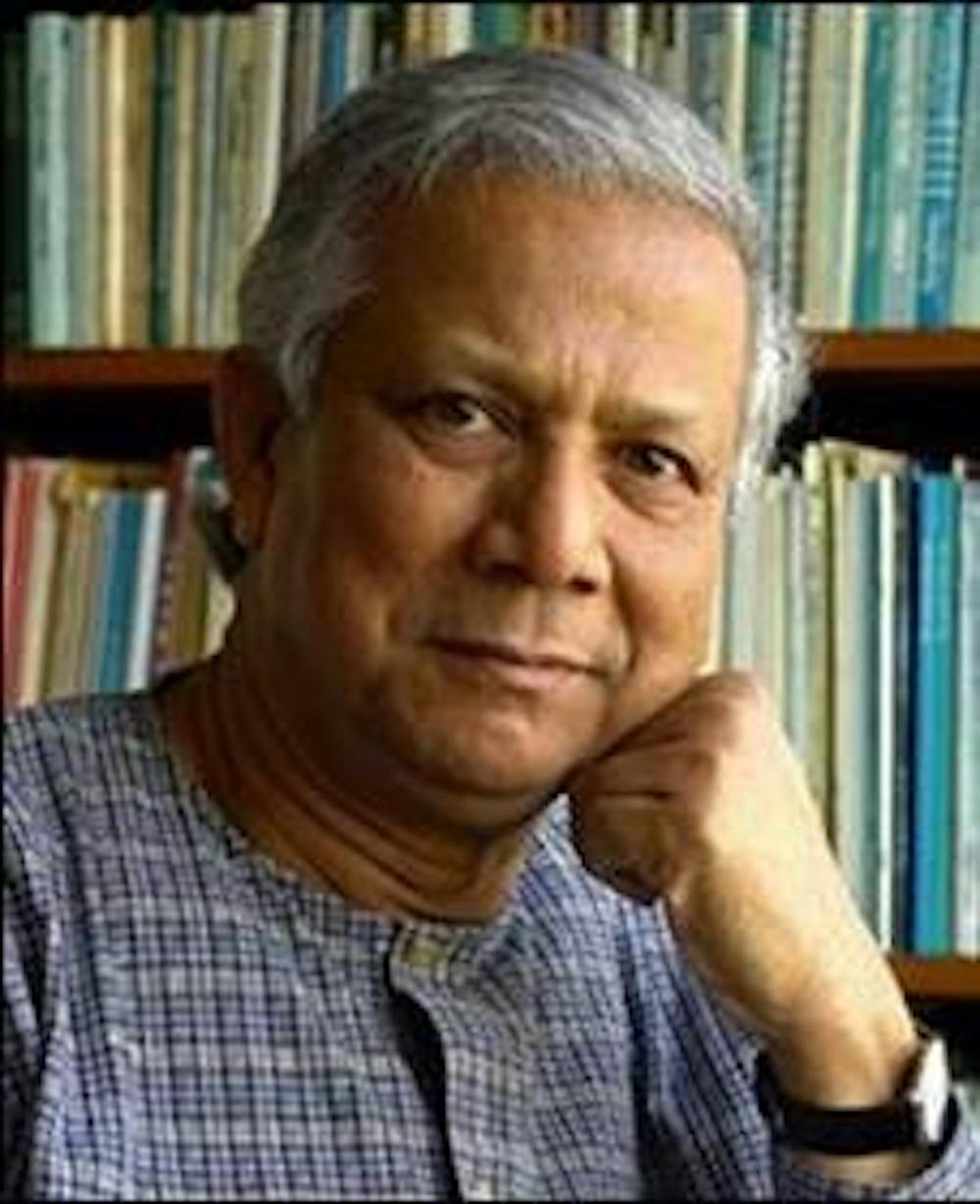Each year, Elon University's Common Reading Program selects a book for incoming freshmen and other interested students, faculty and staff that will challenge them to reflect on themselves and the local and global communities in which they live. This year's choice is Muhammad Yunus's "Creating a World Without Poverty: Social Business and the Future of Capitalism."
Selection of the Book
Janet Warman, director of general studies and chair of the common reading committee, said the book was selected for its value in educating Elon's students about poverty as a critical global issue.
Warman said she hopes the book will expose students to an area of the world and a topic that may be unfamiliar to them but which they can use to think about how they might make a difference.
"As a winner, along with the Grameen Bank, of the Nobel Peace Prize in 2006, Dr. Yunus is one of the individuals who has been deemed most responsible for improving life on this planet," she said. "If we want our students to see models of individuals who can take their education and put it to noble ends, Dr. Yunus is certainly such a person."
Some students said they believed the book came at a good time as they were beginning college.
"I think that the message certainly resonates with students my age because we are entering a time in our lives when we will be given the opportunities and knowledge necessary to make a difference in the world," said freshman Brooke Jenkins.
But others said they thought the book might be hard for some of their peers to connect with.
"Sometimes I think young adults, coming out of their self-absorbed teenage years, have trouble thinking that they can change the whole world on their own," freshman Shannon Popoff said.
No matter how students responded to the book, Warman said the opportunity to hear from a Nobel Peace Prize winner is rare and students should feel privileged to have that opportunity.
Yunus will be the featured speaker at Convocation for Honors April 3, 2012.
About the Book
Yunus pioneered micro-lending, a banking program that provides poor people, mainly women, with small loans they can use to launch businesses that will hopefully lift their families out of poverty. In "Creating a World Without Poverty," he introduces a new means of reducing the global crisis.
Yunus describes how the idea of social business, which uses innovative companies that are designed to address a specific social objective, can tackle problems from poverty and pollution to inadequate health care and lack of education.
According to his website, by partnering with some of the world's most forward thinking business leaders, Yunus has pioneered this idea by creating purposeful social businesses.
Yunus writes about working with companies such as Danone, whose mission is "bringing health through food to as many people as possible, to produce affordable, nutritious yogurt for malnourished children in Bangladesh," and setting up eye care clinics that will save thousands of poor people from blindness.
About the Author
Yunus was born in Chittagong, Bangladesh, and received a Fulbright scholarship to study economics at Vanderbilt University, where he received his Ph.D. Later, he returned to Bangladesh and joined Chittagong University as head of its economics department.
In 1983, Yunus founded the Grameen Bank, an institution that provides loans to entrepreneurs too poor to qualify for traditional bank loans.
The goal was to create opportunities for self-employment for the large number of unemployed people in rural Bangladesh. It removed the need for collateral and is a banking system solely based on mutual trust and accountability. According to the Grameen Bank website, as of June 2011, it has 8.37 million borrowers, 97 percent of whom are women.
In early March, Yunus was fired from his position as managing director of Grameen Bank. According to the BBC, the bank said he was improperly appointed after passing retirement age, but Yunus said he thought the attempt to remove him from office was politically motivated.
Yunus appealed the attempt to remove him from office, but in April, he lost his final appeal in Bangladesh's Supreme Court.


